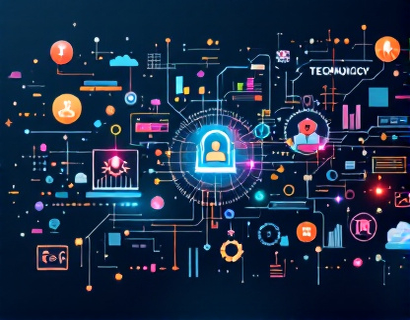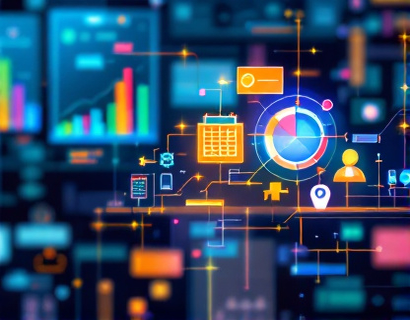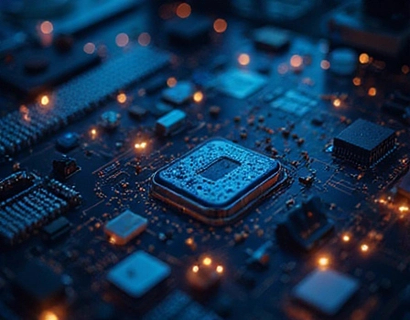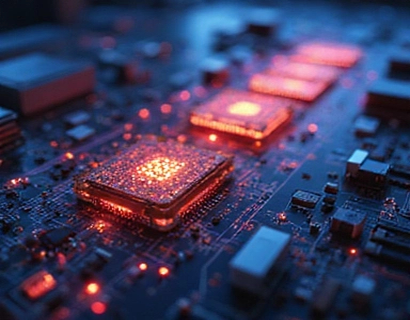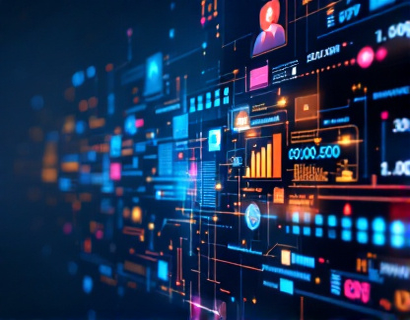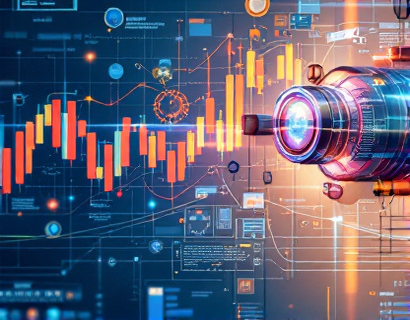Decentralized Innovation: Harnessing AI and Crypto for Next-Gen Digital Solutions
The intersection of cryptocurrency and artificial intelligence (AI) is giving rise to a new era of digital innovation, characterized by decentralized applications and AI-driven services that are redefining user experiences and engagement. This article delves into the synergy between these two transformative technologies, exploring how they are converging to create cutting-edge digital solutions. For tech enthusiasts, early adopters of decentralized applications, and anyone interested in the future of digital innovation, understanding this convergence is crucial.
The concept of decentralization has been a cornerstone of blockchain technology, which underpins cryptocurrencies. Decentralization refers to the distribution of control and decision-making across a network, eliminating the need for a central authority. This paradigm shift has profound implications for various industries, from finance to healthcare, by promoting transparency, security, and user empowerment. When combined with AI, decentralization takes on new dimensions, enabling the creation of intelligent, autonomous systems that can operate without centralized control.
AI, with its ability to process vast amounts of data, learn from patterns, and make decisions, is a natural fit for decentralized environments. In a decentralized setup, AI can be deployed across a network of nodes, each contributing to the overall intelligence of the system. This distributed AI approach not only enhances scalability but also improves resilience, as the system can continue to function even if some nodes fail. The combination of AI and decentralization paves the way for innovative applications that were previously unimaginable.
Decentralized Applications (DApps)
Decentralized Applications, or DApps, are software applications that run on a blockchain or a decentralized network. Unlike traditional applications, DApps are not controlled by a single entity and are governed by smart contracts, which are self-executing contracts with the terms directly written into code. This ensures transparency, security, and autonomy.
One of the key features of DApps is their ability to leverage AI for enhanced functionality. For instance, AI can be used to analyze user behavior, personalize experiences, and optimize performance. In a decentralized environment, this data can be collected and processed across the network, ensuring that no single point of failure exists. This distributed approach to data processing and AI-driven decision-making enhances the reliability and efficiency of DApps.
Consider a decentralized finance (DeFi) platform that uses AI to predict market trends and automate trading strategies. Users can interact with the platform through a user-friendly interface, while the underlying AI algorithms handle complex calculations and decision-making. The decentralized nature of the platform ensures that no single entity has control over the trading strategies, reducing the risk of manipulation and increasing trust among users.
AI-Driven Services on Decentralized Platforms
Beyond DApps, AI-driven services are finding new avenues on decentralized platforms. These services can range from decentralized identity management to AI-powered content creation and beyond. The integration of AI in these services not only enhances their capabilities but also ensures that they operate in a transparent and secure manner.
Decentralized identity management is a prime example. Traditional identity systems are centralized, making them vulnerable to breaches and misuse. A decentralized identity solution, powered by AI, can provide users with control over their personal data. AI algorithms can verify identities, detect fraud, and ensure compliance with regulations, all while maintaining user privacy. This approach not only enhances security but also empowers users by giving them ownership of their data.
AI-powered content creation is another exciting area. Decentralized platforms can utilize AI to generate high-quality content, such as articles, images, and videos, without the need for centralized content creation teams. AI models can be trained on decentralized data sources, ensuring a diverse and unbiased content pool. This not only reduces costs but also democratizes content creation, allowing anyone with an internet connection to produce and share high-quality content.
Enhancing User Engagement through Decentralized Innovation
User engagement is a critical factor in the success of any digital platform. Decentralized innovation, combined with AI, offers powerful tools to enhance user engagement in novel ways. By leveraging the transparency and autonomy of decentralized systems, platforms can create more interactive and rewarding experiences for users.
Gamification is one such approach. Decentralized platforms can use AI to design dynamic and adaptive gamification strategies that keep users engaged. For example, a decentralized social media platform could use AI to analyze user interactions and tailor gamified elements such as badges, rewards, and challenges to individual preferences. This personalized approach not only increases user retention but also fosters a sense of community and participation.
Another innovative approach is the use of decentralized incentives. AI can optimize the distribution of rewards and tokens to motivate user behavior in alignment with the platform's goals. For instance, a decentralized marketplace could use AI to dynamically adjust token rewards based on user contributions, such as reviews, ratings, and content creation. This ensures that the most valuable contributors are appropriately incentivized, fostering a vibrant and active community.
Challenges and Considerations
While the potential of decentralized innovation combined with AI is vast, there are several challenges and considerations that need to be addressed. One of the primary challenges is scalability. Decentralized networks, especially those using blockchain, can face performance bottlenecks as the number of users and transactions increases. AI can play a role in optimizing network performance, but significant advancements in blockchain technology are still needed to support large-scale decentralized applications.
Another challenge is regulatory uncertainty. The intersection of cryptocurrency and AI falls into a gray area of existing regulations, making it difficult for developers and businesses to navigate. Clear and supportive regulatory frameworks are essential to foster innovation while protecting users and maintaining ethical standards.
Privacy is also a critical concern. While decentralized systems aim to enhance user control over data, the use of AI often requires access to substantial amounts of data for training and optimization. Ensuring that user data is handled securely and ethically is paramount. Techniques such as differential privacy and federated learning can help balance the need for data with privacy concerns.
Future Prospects
The future of decentralized innovation combined with AI is promising. As technology advances, we can expect to see more sophisticated and seamless integrations between these fields. The development of more efficient blockchain protocols, advancements in AI algorithms, and the emergence of new decentralized platforms will continue to drive this convergence.
One exciting prospect is the rise of decentralized AI markets, where AI models and data can be bought, sold, and shared in a transparent and secure manner. These markets could democratize access to AI technology, allowing developers and businesses of all sizes to leverage powerful AI tools without the need for significant resources.
Another area of growth is the integration of AI with other decentralized technologies, such as the Internet of Things (IoT) and edge computing. Decentralized AI can enable smart, autonomous devices that make decisions based on real-time data, enhancing the efficiency and reliability of IoT systems. This synergy has the potential to revolutionize industries ranging from smart cities to industrial automation.
In conclusion, the merging of cryptocurrency and AI is giving birth to a new generation of digital solutions that are more intelligent, secure, and user-centric. Decentralized applications and AI-driven services are transforming the way we interact with digital platforms, offering unprecedented levels of engagement and empowerment. As this field continues to evolve, it is essential for tech enthusiasts, innovators, and early adopters to stay informed and embrace the opportunities presented by decentralized innovation.








